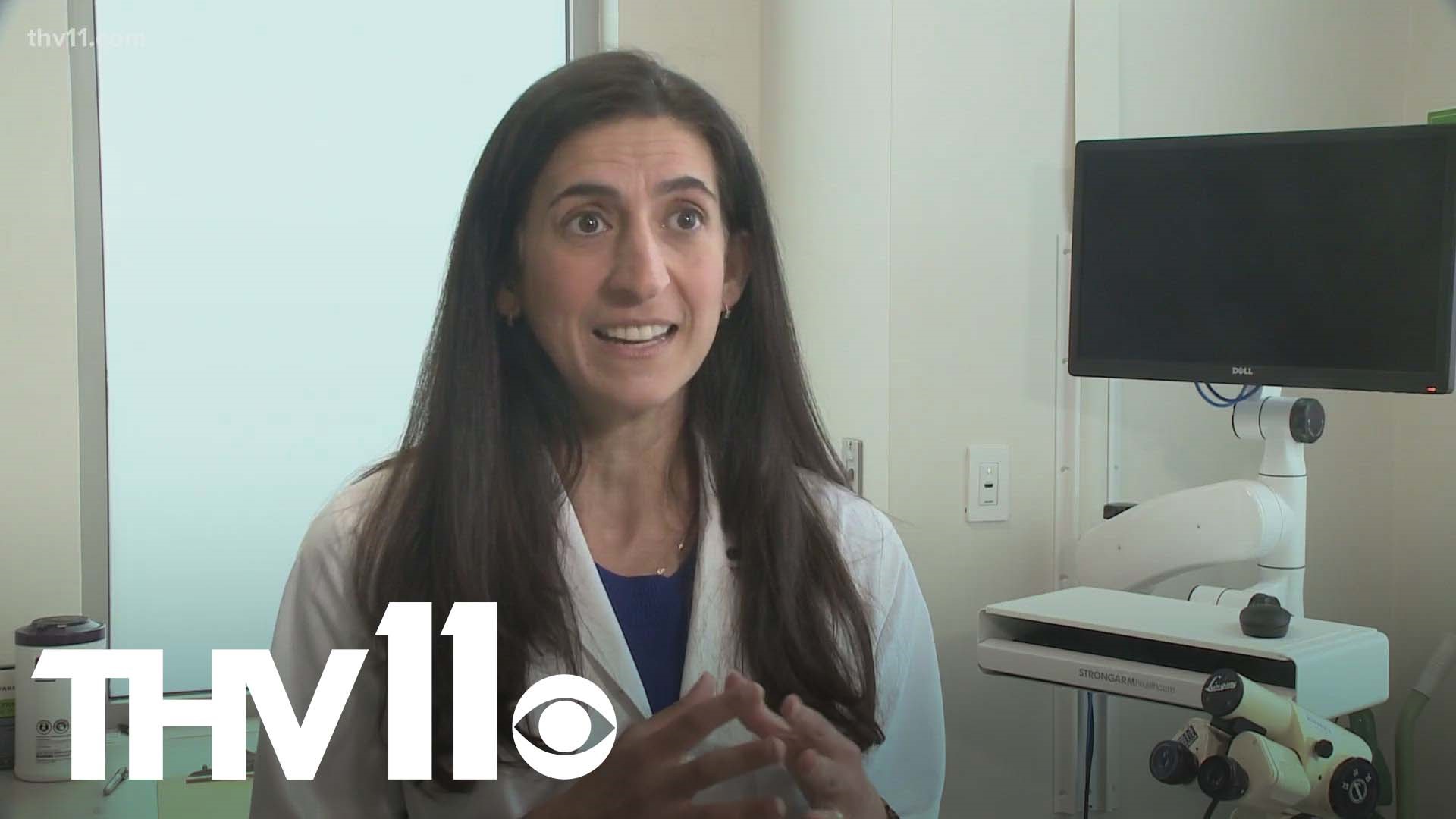LITTLE ROCK, Ark. — A new study recently released in the UK examined whether the use of popular birth control methods has an influence on a woman’s risk of developing breast cancer.
For this month's Buddy Check 11 Breast Cancer Awareness and Prevention report, we learned that there are some confusing numbers in the study results— and that they are enough for a UAMS OB/GYN doctor to be concerned.
Dr. Nirvana Manning, the Chair of the OB/GYN Department at UAMS, explained why.
She said she’s concerned that women who may hear about the research could be frightened by some of the numbers in the study and stop using their birth control to avoid an increased risk of breast cancer.
"Please do not quit your birth control without a discussion with your provider, and recognize that sometimes the numbers might not necessarily be all that they seem," Dr. Manning urged.
The study results are less than a month old and have been slowly making their way through the medical community.
Researchers compared breast cancer risks among thousands of British women who were using or had used modern birth control methods like the pill, which is made with a combination of the hormones estrogen and progesterone.
They also wanted to see if progesterone alone might alter a woman's breast cancer risk one way or the other.
The findings varied little between the two different methods. Dr. Manning interpreted the findings like this, saying “What I think the take home is, is that our progesterone-only birth controls may not be better, but they certainly don't appear to be any worse."
Dr. Manning added that research conducted with women in the UK may not properly represent the American lifestyle and that in some cases the benefits of birth control are greater than the risks.
“There are benefits with regards to endometrial, ovarian, and colon cancer, not to mention it prevents pregnancy. And as we know, maternal mortality is a huge issue in our country," Dr. Manning explained. "If you were to break down those numbers, the risk of developing breast cancer is half of what maternal mortality is in our nation.”
For women who may be wondering about their breast health and the effects of birth control, Dr. Manning encouraged them to make an appointment with their provider.

